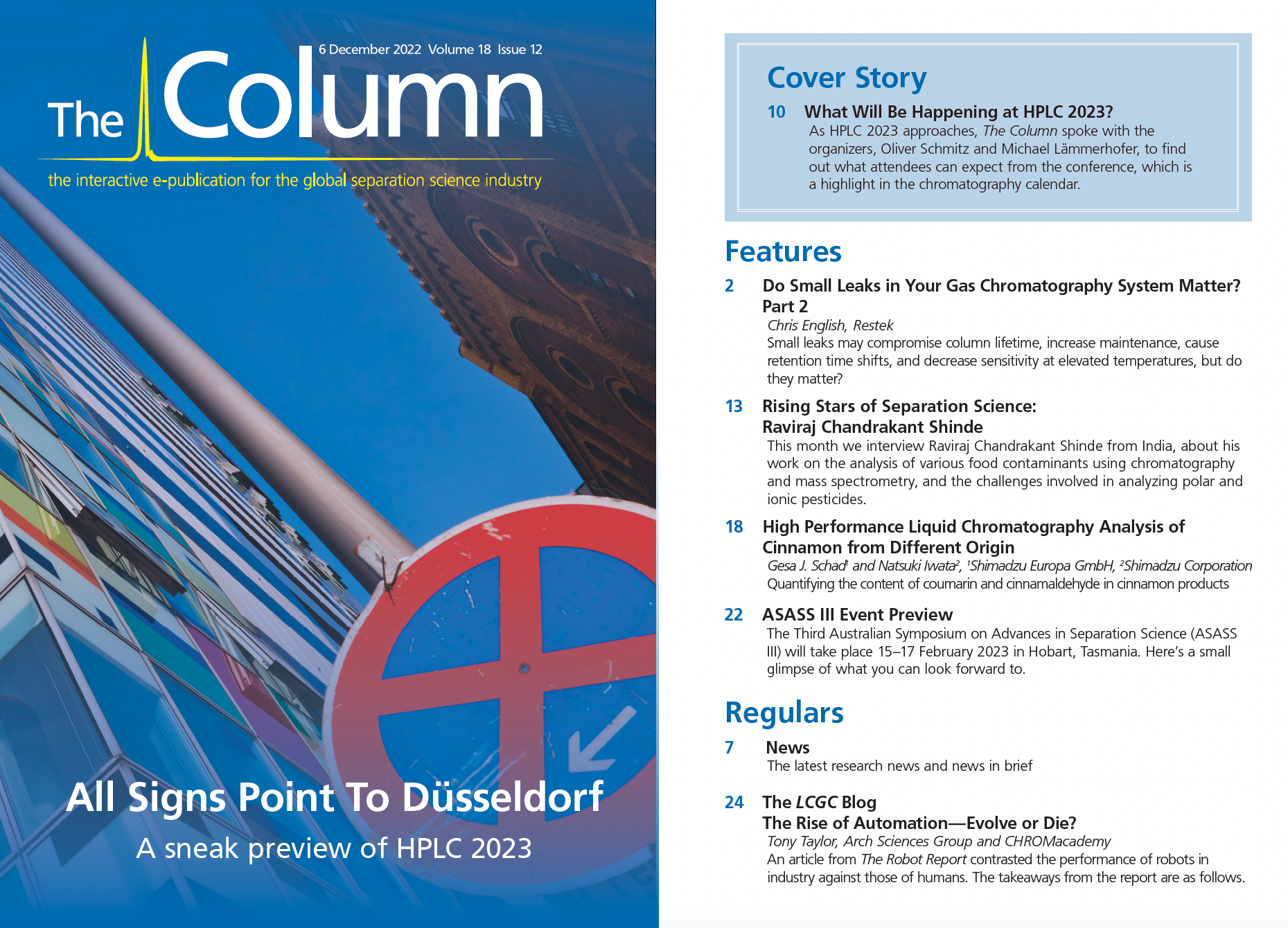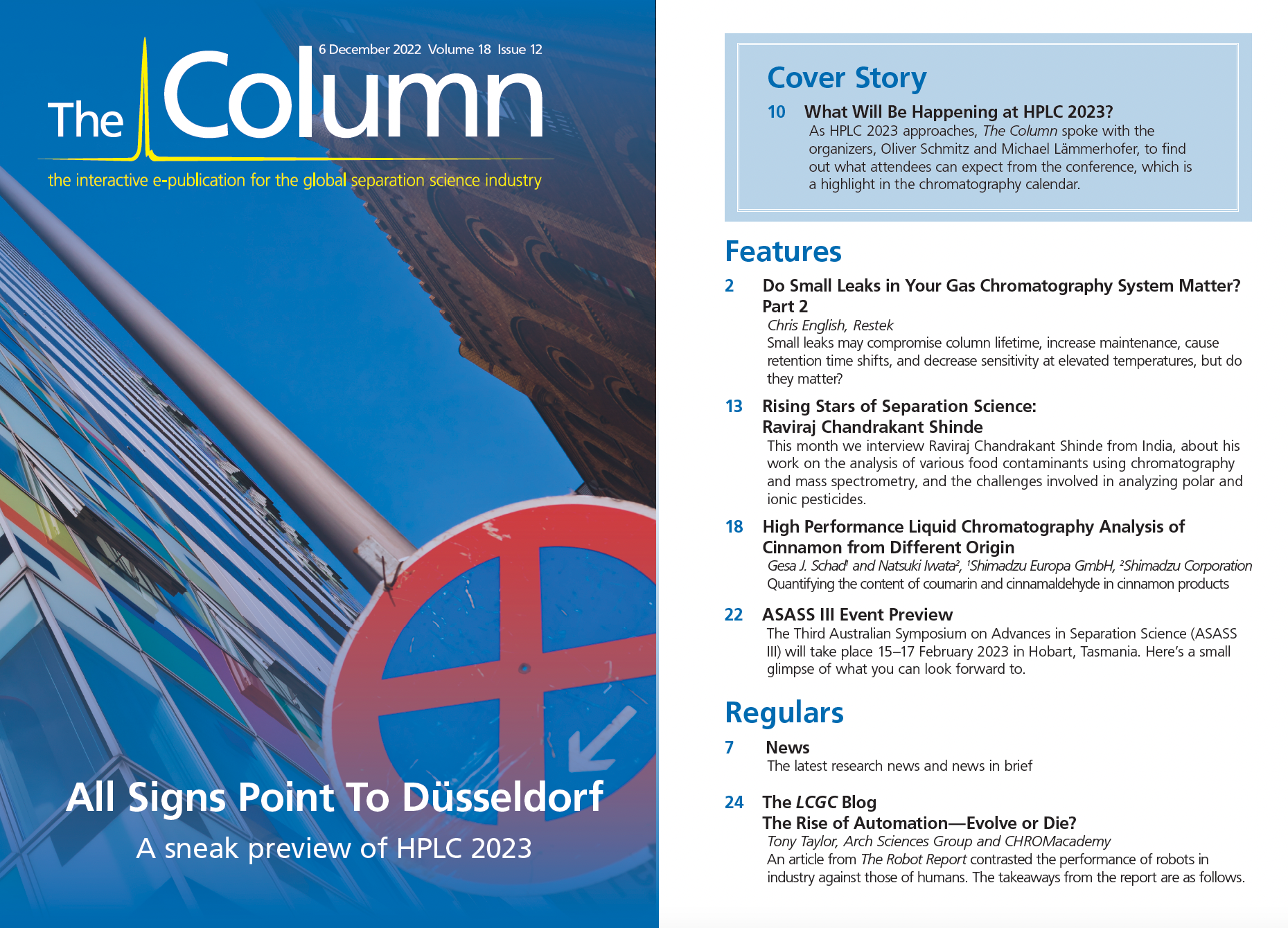Shimadzu Collaborates with University Medical Center Göttingen
Shimadzu (Duisburg, Germany) has announced a collaboration with the
University Medical Center Göttingen (UMG) (Germany). The collaboration will focus on the development of new clinical laboratory methods using liquid chromatography–mass spectrometry (LC–MS) for therapeutic drug monitoring (TDM) analysis.
TDM plays an important role in providing precision medical care; TDM analysis measures the concentration of drugs currently in the blood to determine the next dosage of a drug. Working together with Prof. Andreas Fischer, Dr. Frank Streit, and other leading experts at UMG, new methods for multiple target groups of drugs will be developed and optimized so that clinical laboratories can switch methods quickly and easily. Speeding up this process will give doctors, clinics, and hospitals treating emergency cases quicker access to better test results, and ultimately lead to better medical care for emergency patients.
The collaboration with UMG takes place with the help and support of Shimadzu’s European Innovation Center (EUIC) programme.
For more information please visit www.shimadzu.eu

Maximizing Cannabinoid Separation for Potency Testing with LC
April 7th 2025Researchers from the Department of Chemistry at Western Illinois University (Macomb, Illinois) conducted a study to optimize the separation of 18 cannabinoids for potency testing of hemp-based products, using liquid chromatography with a diode array detector (LC–DAD). As part of our monthlong series of articles pertaining to National Cannabis Awareness Month, LCGC International spoke to Liguo Song, the corresponding author of the paper stemming from this research, to discuss the study and its findings.
How Many Repetitions Do I Need? Caught Between Sound Statistics and Chromatographic Practice
April 7th 2025In chromatographic analysis, the number of repeated measurements is often limited due to time, cost, and sample availability constraints. It is therefore not uncommon for chromatographers to do a single measurement.
















